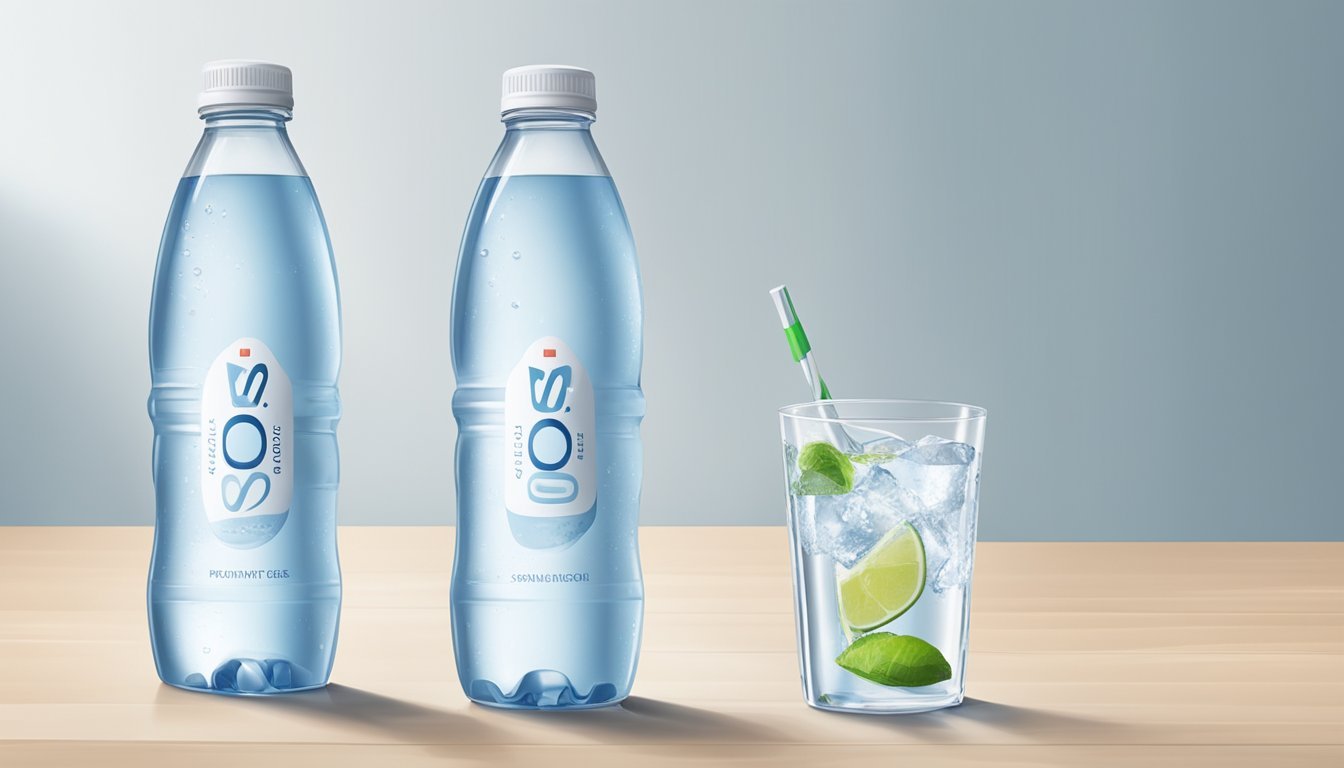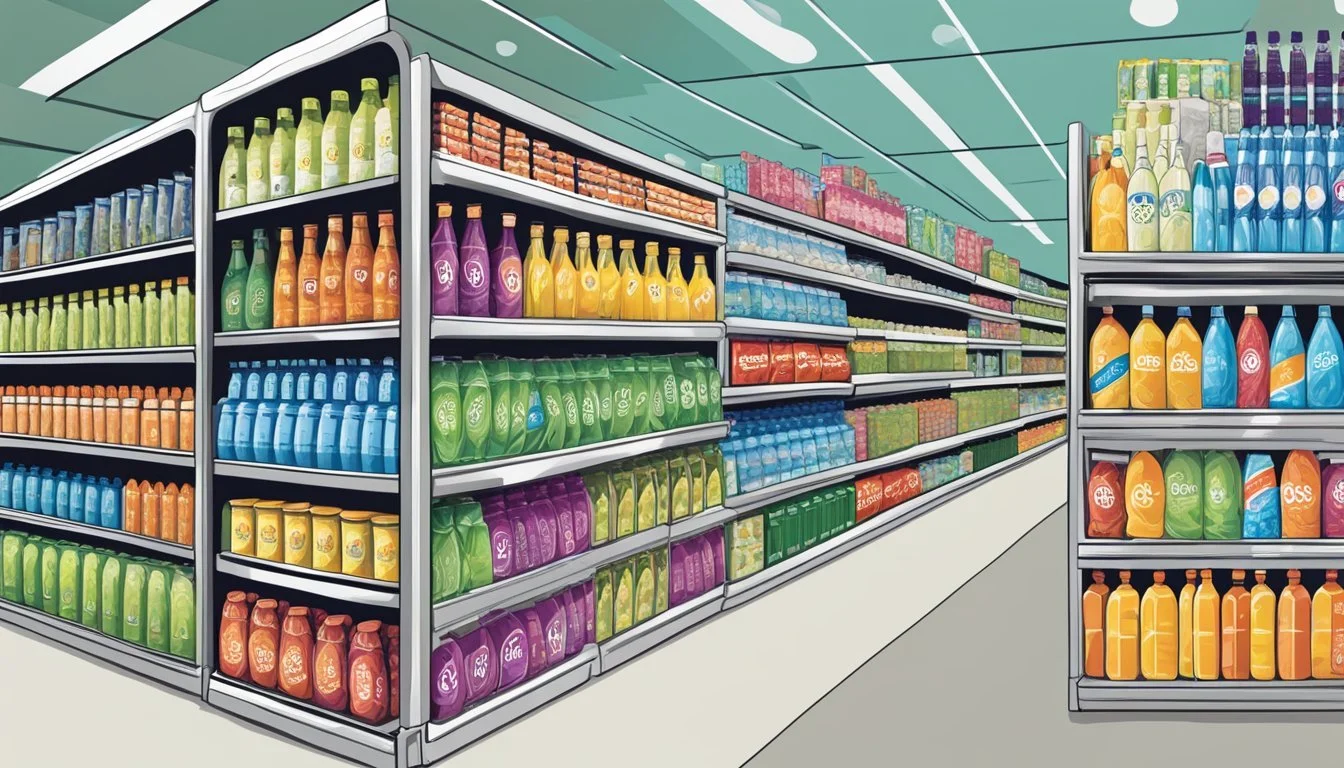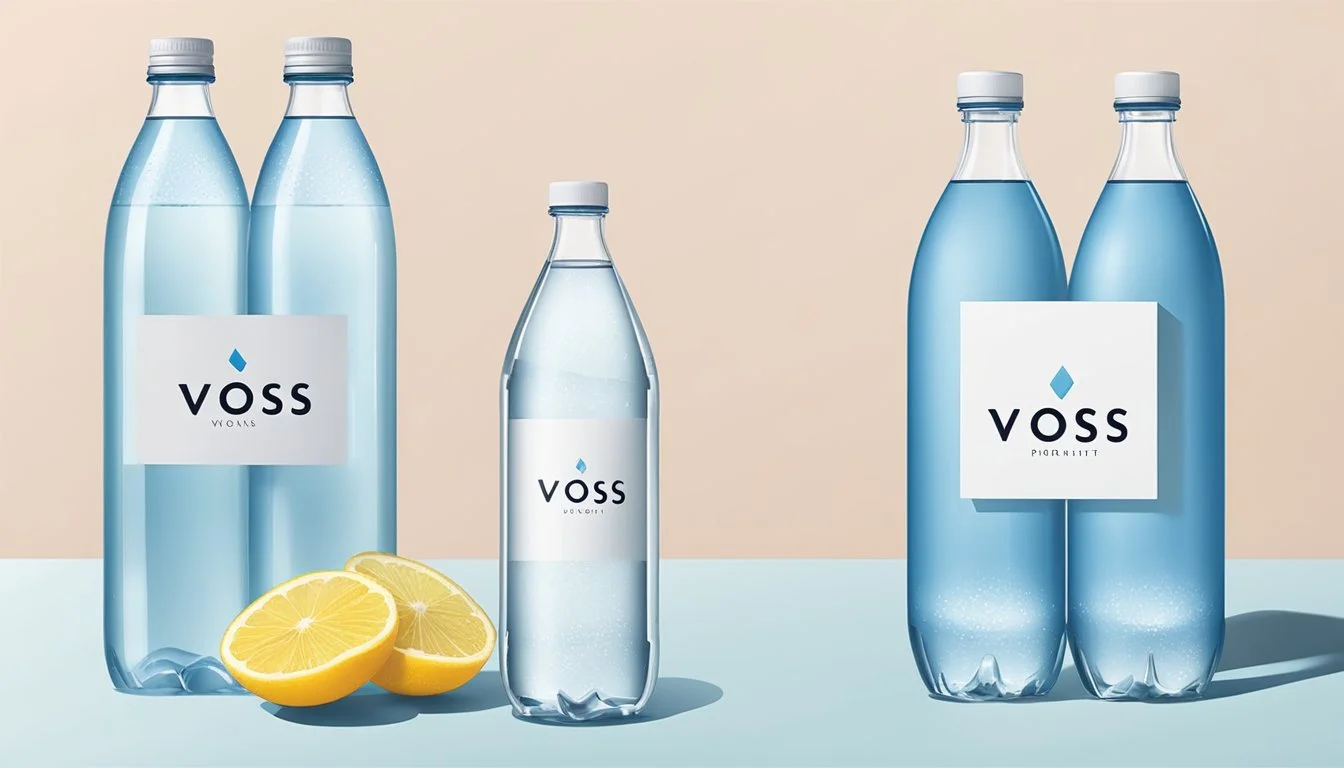Bai vs. Voss
Comparing Quality and Taste of Premium Bottled Waters
In the ever-expanding market of bottled waters, discerning consumers are often faced with a choice between premium brands that promise not only hydration but also a taste of luxury. Bai and Voss are two contenders that have captivated the attention of health-conscious individuals and those with a taste for fine water. While Bai offers antioxidant-infused flavors derived from exotic fruits, Voss is recognized for its pure and refreshing taste, often attributed to its Norwegian origins.
The debate over Bai versus Voss extends beyond the mere aspect of quenching thirst. It encompasses a broader discussion about water quality, sourcing, health benefits, and the environmental impact of packaging. Bai prides itself on providing a beverage with added antioxidants and low-calorie flavor options, whereas Voss touts its minimalistic approach to processing and sleek bottle design, which has become a symbol of status in some social circles.
When choosing between Bai and Voss, consumers must weigh the unique selling points of each brand. Bai's flavorful offerings and health-oriented marketing may appeal to those seeking more than plain water, while Voss's appeal lies in its commitment to purity and simplicity. Both brands have their loyal followings, but the choice ultimately comes down to personal preference and the value one places on each brand's distinct characteristics.
Overview of Bai and Voss
Bai bottled water offers flavored water options that are enhanced with antioxidants and vitamins. Their line includes varieties infused with fruit flavors, aiming to provide a hydrating experience coupled with health benefits. Bai focuses on low-calorie counts and minimal sugar, touting the use of natural sweeteners.
Voss, in contrast, prides itself on purity and its source. Voss water originates from Southern Norway, boasting a natural filtration process that excludes pollutants. The brand is noted for its high-quality and clean taste, typically packaged in distinct, stylish glass bottles that emphasize its premium market position.
When considering their market segments, Voss appeals to consumers seeking luxury and purity in still or sparkling forms, whereas Bai appeals to those looking for functional beverages with additional health benefits.
Aspect Bai Voss Product Type Flavored water Pure, still, and sparkling water Key Features Antioxidants, vitamins, low-calorie Source purity, sleek packaging Target Market Health-conscious, flavor-seeking Premium, purity-appreciative
In the landscape of bottled waters, these brands represent two different approaches — Bai prioritizes functional health benefits and flavorful hydration, while Voss focuses on the quality and purity of the water itself, wrapped in a premium consumer experience. Both water brands have carved out distinct niches within the bottled water market.
Water Source and Quality
The source and quality of bottled water are crucial indicators of its purity and taste. Consumers often choose between different brands based on these attributes.
Bai Water Sources
Bai beverages are known to use reverse osmosis water, which starts as municipal tap water. This water undergoes a purification process that includes reverse osmosis, ultraviolet light, and carbon filtration, removing impurities and ensuring consistency in quality and taste.
Voss Water Sources
Voss water comes from an underground aquifer in the untouched wilderness of Southern Norway. Protected from pollutants, the artesian water is naturally rich in minerals and electrolytes. It is unprocessed and free-flowing, bottled at the source to maintain its purity.
Comparison of Water Sources
Bai utilizes reverse osmosis to ensure its water meets a consistent level of purity, virtually erasing the original source's influence on the product's final quality.
Voss, on the other hand, relies on the natural qualities of artesian water, with its source adding to the brand's prestige, promoting a clear, refreshing taste profile influenced by the natural mineral and electrolyte content.
Bai's process of reverse osmosis is considered effective in producing clean water, but it typically strips away naturally occurring minerals, which are then artificially added back into the water.
Voss' advantage lies in its natural spring water quality, which is preferred by some consumers for retaining its original mineral profile, thought to impart a superior taste.
Nutritional Content and Health Benefits
The comparison between Bai Water and Voss Water in terms of nutritional content and health benefits hinges largely on their mineral content, electrolyte levels, and the presence of contaminants. Each brand offers unique attributes that contribute to overall health and hydration.
Electrolytes and Minerals
Bai Water is known for its inclusion of antioxidants sourced from coffee fruit extract and tea extract. Electrolytes, which are critical for hydration and muscle function, are not typically a highlighted feature of Bai Water. In contrast, Voss Water is recognized for its natural mineral content. It boasts electrolytes such as calcium, magnesium, and potassium that support hydration.
Bai Water: Minimal electrolytes; High antioxidants
Voss Water: Natural electrolytes (Calcium, Magnesium, Potassium); Low-calorie
Presence of Contaminants
When it comes to the purity of bottled water, both Bai and Voss are expected to meet the EPA guidelines for contaminants. Total dissolved solids (TDS) relate to the presence of minerals and are not necessarily indicating contaminants. While Bai does not typically advertise its pH level or alkaline properties, Voss is sometimes associated with alkaline water, which some health advocates prefer for its potential to balance the body's pH. Neither brand uses bottles with BPA, a chemical that has raised health concerns.
Bai Water: Complies with EPA standards; Not known for alkaline water
Voss Water: Low TDS; Sometimes associated with alkaline pH levels; BPA-free packaging
Taste and Hydration Experience
In the world of bottled water, Bai and Voss are recognized for their distinct taste profiles and hydration qualities. Consumers often debate their preferences based on these characteristics.
Bai's Flavor Profile
Bai flavored waters are infused with fruit flavors and are sweetened. Bai often includes additional ingredients such as antioxidants and vitamins. The taste of Bai water is typically characterized by a subtle sweetness, attributed to the use of natural sweeteners like erythritol and stevia. Bai's flavor signature leans towards a fruity and refreshing palate, making it stand out from plain water.
Voss's Flavor Profile
Voss water, on the other hand, is often celebrated for its purity and clean taste. It's sourced from Norway and is known for its minimal mineral content, which contributes to its neutral flavor profile. Voss does not contain any sweeteners, colors, or artificial flavors, positioning it as a premium product within the bottled water market. The brand emphasizes its naturally unaltered state, offering a crisp and refreshing water taste.
Comparison of Taste and Hydration
Taste: Bai waters offer a variety of flavors, appealing to those who prefer a sweeter, flavored beverage, while Voss is for purists who enjoy the taste of unflavored water.
Flavor: The added fruit flavors and sweeteners in Bai cater to a more diverse palate, whereas Voss's flavor profile is straightforward and clean.
Water Taste: Voss is often preferred in blind taste tests by individuals who value the natural taste of water without enhancements.
Hydration: Both brands provide hydration, but the experience differs. Bai's added flavors may encourage increased consumption for those who enjoy a taste-infused hydration, while Voss's pure form is ideal for straightforward hydration needs.
Sweeteners: Bai includes natural sweeteners, which do not affect hydration but alter taste. Voss remains free of any sweeteners, maintaining the water's natural flavor.
In summary, the choice between Bai's flavor-infused water and Voss's pure tasting water depends on individual taste preferences and hydration desires. Bai offers a sweetened, flavorful experience, and Voss caters to those seeking unaltered hydration.
Environmental Impact and Sustainability
Making informed choices about bottled water brands involves considering their environmental impact and sustainability practices. Key considerations include the bottling processes and the use of plastics, as well as their recyclability and effect on ecosystems.
Bottling Processes
The production of bottled water necessitates significant energy and resource consumption. Brands differ in their bottling methods, with some opting for energy-intensive procedures. Bai promotes the use of reverse osmosis and carbon filtration to ensure purity, which can be resource-intensive. Voss, on the other hand, is known for sourcing naturally pure water that requires minimal processing, potentially reducing its environmental footprint.
Plastic Usage and Recycling
Plastic bottles are a staple for many water brands, including Bai, offering convenience for consumers. However, they contribute to environmental concerns when not properly recycled. The plastic in water bottles can take hundreds of years to decompose, causing potential harm to ecosystems. Voss has been recognized for its use of glass bottles, which are more readily recyclable and can reduce the prevalence of plastics in the environment. Despite this, glass production and recycling also carry an environmental impact, although generally less harmful than plastics.
Bai: Utilizes plastics that are recyclable; however, the recycling rates and proper disposal by consumers are critical factors.
Voss: Offers glass bottles that cater to a more sustainable model, as glass can be recycled indefinitely without losing purity or quality.
Both companies have the opportunity to contribute to environmental conservation by encouraging consumers to recycle and by engaging in responsible stewardship of resources throughout their production processes.
Brand Presence and Consumer Perception
In the competitive bottled water market, Bai and Voss have carved out distinct brand presences, with consumer perceptions shaping their market positions and brand loyalty.
Market Position
Bai, a beverage company known for its fruit-flavored water, positions itself as a healthier alternative, delivering antioxidants and low-calorie options to health-conscious consumers. Its market presence is bolstered by its range of flavors and its appeal to those seeking beverages with added benefits.
Voss, on the other hand, has established itself as a premium brand, often associated with high-end restaurants and luxurious hospitality services. While Voss is a Norwegian brand recognized for its artesian water sources, its market position aligns with quality and exclusivity.
Consumer Trust and Loyalty Consumer trust for Bai arises from its transparency in labeling and its use of natural ingredients, earning it a dedicated base of customers looking for functional beverages. Bai's ability to maintain consistent quality and deliver on its health-focused promise reinforces this trust.
Voss has earned consumer loyalty through its sleek bottle design and consistent taste, preferred by a demographic that values the status and sophistication it represents. The brand's reputation for purity and its artesian source origins resonate strongly with its loyal customers, securing Voss's position in the high-end bottled water segment.
Price Point and Value for Money
When considering Bai and Voss bottled water, consumers are looking at two different market segments. Bai, known for its antioxidant infusion drinks, is often available in grocery stores and prides itself on a combination of hydration and health benefits. Voss, on the other hand, is a premium brand that boasts pure and natural water from Norwegian aquifers.
In terms of price, Voss water tends to be more expensive. It is marketed as a luxury product and this is reflected in its cost. The price a consumer pays for Voss is not just for hydration, but also for the brand prestige that comes with it.
Convenience: Both Bai and Voss waters are typically available in grocery stores, Bai being more prevalent due to its broader product range and lower price point.
Value for Money: Bai offers additional health ingredients, such as antioxidants and vitamins, which could contribute to a perception of higher value for money given the added benefits.
Brand Price Range Availability Notable Features Bai Lower Widely available in most grocery stores Added health benefits (antioxidants, vitamins) Voss Higher Available, but may be less common Premium branding, Norwegian aquifer source
Consumers seeking just hydration might find Bai to provide more value for money, considering the added health benefits and the lower price point. However, those looking for premium drinking experience might prefer Voss despite the higher price tag, due to its luxury branding and quality. The decision between Bai and Voss often comes down to personal values: health benefits and cost savings with Bai, against the premium image and taste of Voss.
Conclusion and Recommendations
When considering Bai and Voss bottled waters, consumers are faced with two high-quality options that cater to different preferences. A consumer's choice may ultimately be influenced by factors such as taste, packaging, brand reputation, and the water's source.
Bai:
Bai's antioxidant-infused waters provide a flavor-enhanced alternative to traditional bottled water. It is often selected by those seeking additional taste without a significant calorie increase. However, it is important to note that Bai is not simply water but a flavored beverage, which may not satisfy pure water seekers.
Voss:
Voss, on the other hand, is often applauded for its purity and fashionable packaging. The brand has made a name for itself as a premium water choice, and according to some taste tests, it ranks highly for its clean and refreshing taste.
Table: Quick Comparison
Aspect Bai Voss Flavor Infused with antioxidants and flavors Pure, unflavored water Packaging Mostly plastic bottles Glass and plastic bottle options Product Type Flavored water beverage Bottled water
Recommendations for consumers hinge on their hydration goals:
If one prefers a flavored beverage that is low in calories, Bai may be the preferable choice.
For those in search of a pure and unflavored bottled water, particularly with sleek packaging suitable for a premium setting, Voss stands out as the recommended option.
While individual preferences will vary, Voss emerges as the preferred option for those ranking bottled waters from worst to best based solely on the water's purity and packaging design. Bai offers a distinctive approach, blending water with flavor and antioxidants, which appeals to a different consumer segment. Each has its merits, and the best bottled water is subjective to the tastes and requirements of the individual.









